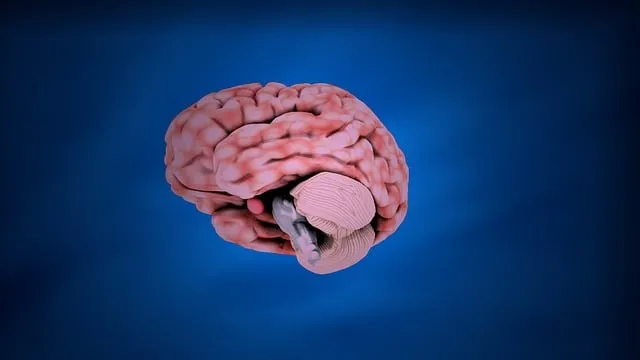The stigma surrounding mental illness in Lakewood deters individuals from seeking help, particularly for Kaiser's available services. This societal barrier leads to silent suffering and delayed treatment. Understanding stigma's impact is crucial for fostering open discussions about mental health, access to professional care, and recognizing symptoms of common issues like depression and anxiety. Both Lakewood and Kaiser offer distinct mental health support: Lakewood focuses on community-based programs and holistic care, while Kaiser provides a network of specialized professionals and innovative treatments. Reducing stigma requires policy changes, cultural shifts, and integrating mental health services into primary care. Community engagement and education are key to combating stigma, normalizing conversations about mental health, and improving access to care like what Kaiser offers in Lakewood.
Mental illness stigma remains a significant barrier to seeking help, with widespread misconceptions leading to isolation and discrimination. This article explores strategies to reduce this harmful perception through a multi-faceted approach. We begin by delving into the profound impact of stigma on mental health-seeking behaviors, followed by a comparative analysis of mental health services in Lakewood and Kaiser. Effective strategies within healthcare settings are highlighted, emphasizing the crucial role of community engagement and education in fostering positive change towards mental illness. Understanding these aspects is key to achieving equitable access to care, such as the services offered by Lakewood and Kaiser.
- Understanding Stigma: Its Impact on Mental Health Seeking Behaviors
- Lakewood and Kaiser: A Comparative Analysis of Mental Health Services
- Effective Strategies to Reduce Stigma in Healthcare Settings
- Community Engagement and Education: Empowering Change in Mental Illness Perception
Understanding Stigma: Its Impact on Mental Health Seeking Behaviors

Stigma surrounding mental illness can significantly impact an individual’s willingness to seek help and support for their emotional well-being. Often, those struggling with mental health issues face societal barriers that discourage them from accessing necessary services. This stigma can manifest as negative perceptions, stereotypes, and discrimination, leading many to suffer in silence or delay crucial treatment. For instance, individuals in Lakewood who might be curious about Kaiser’s mental health services may hesitate due to fear of judgment or labeling.
When left unaddressed, stigma hinders people from openly discussing their mental health struggles, seeking professional help, or even acknowledging symptoms of common issues like depression and anxiety. As a result, it becomes challenging for individuals to access appropriate care, such as those provided by Kaiser in Lakewood, which offers specialized services tailored to diverse needs. Understanding the profound impact of stigma on mental health-seeking behaviors is crucial, encouraging empathy, education, and advocacy efforts to reduce its hold on society and foster an environment where emotional intelligence thrives, ultimately promoting effective depression prevention and stress reduction methods.
Lakewood and Kaiser: A Comparative Analysis of Mental Health Services

Lakewood and Kaiser are two prominent healthcare institutions known for their comprehensive medical services, but do they offer equal support for mental health? Both organizations have made significant strides in reducing the stigma surrounding mental illness, yet there are notable differences in their approaches and available resources.
In terms of mental health services, Lakewood focuses on community-based programs that promote early intervention and prevention. They emphasize holistic care, integrating various therapies to address not just symptoms but also underlying causes. Kaiser, on the other hand, is renowned for its extensive network of specialized mental health professionals. Their model prioritizes individual therapy, group support sessions, and innovative treatments tailored to specific disorders. While Lakewood’s community-centric approach aims to build resilience within individuals and communities, Kaiser’s robust network ensures accessibility and continuity of care for diverse patient needs, including risk management planning for mental health professionals and strategies for anxiety relief and emotional regulation.
Effective Strategies to Reduce Stigma in Healthcare Settings

Reducing stigma in healthcare settings is a multifaceted approach that involves both policy changes and cultural shifts. One effective strategy is to integrate mental health services seamlessly into primary care, making them accessible and normalizing their discussion. For instance, Kaiser Permanente’s approach in Lakewood showcases how integrated care can improve patient outcomes by addressing mental health concerns alongside physical health issues. This holistic model breaks down barriers and encourages patients to seek help without fear of judgment.
Additionally, training healthcare professionals on risk management planning for mental health services is crucial. Equipping staff with the knowledge and skills to handle sensitive situations with empathy and professionalism fosters an environment of support. Incorporating positive thinking and trauma support services into treatment plans can also alleviate stigma by promoting understanding and resilience among patients facing mental health challenges.
Community Engagement and Education: Empowering Change in Mental Illness Perception

Community engagement and education play a pivotal role in reducing the stigma surrounding mental illness. By fostering open conversations about mental health within communities, we can dispel myths, raise awareness, and create supportive environments for individuals facing challenges. Programs that offer stress reduction methods and self-awareness exercises empower people to take charge of their emotional well-being and seek help without fear of judgment. Schools, workplaces, and community centers can all serve as platforms for hosting workshops, sharing resources, and encouraging discussions that promote understanding and empathy.
For instance, Lakewood does Kaiser have mental health services? Such initiatives are crucial in normalizing conversations about mental illness, just like any other health concern. Educational programs can teach people the signs of various conditions, break down misconceptions, and emphasize that seeking support is a sign of strength. This collective effort to destigmatize mental illness fosters a culture where individuals feel comfortable talking openly, reaching out for help, and supporting one another—ultimately leading to improved access to care, such as those offered by Kaiser in Lakewood, for anyone in need.
Mental illness stigma remains a significant barrier to seeking help, but efforts to reduce it are making progress. By comparing mental health services in Lakewood and Kaiser, we’ve highlighted disparities that underscore the need for improvement. Effective strategies like community engagement and education, along with empowering healthcare providers to dispel myths, are crucial steps towards creating a more inclusive environment. Understanding the impact of stigma on behavior is key, as we work together to foster positive change in how mental illness is perceived and treated. In exploring these diverse approaches, we aim to support individuals in their journeys toward healing without fear of judgment or discrimination.






